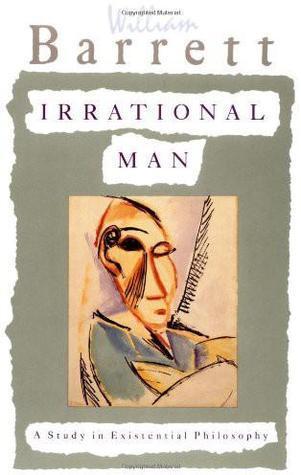What do you think?
Rate this book


314 pages, Paperback
First published January 1, 1958


Irrational Man: A Study In Existential Philosophy is a 1958 book by philosopher William Barrett, in which Barrett explains the philosophical background of existentialism and provides a discussion of several major existentialist thinkers, including Søren Kierkegaard, Friedrich Nietzsche, Martin Heidegger, and Jean-Paul Sartre. Irrational Man helped to introduce existentialism to the English speaking world and has been identified as one of the most useful books that discuss the subject, but Barrett has also been criticized for endorsing irrationality and for giving a distorted and misleading account of Georg Wilhelm Friedrich Hegel.
